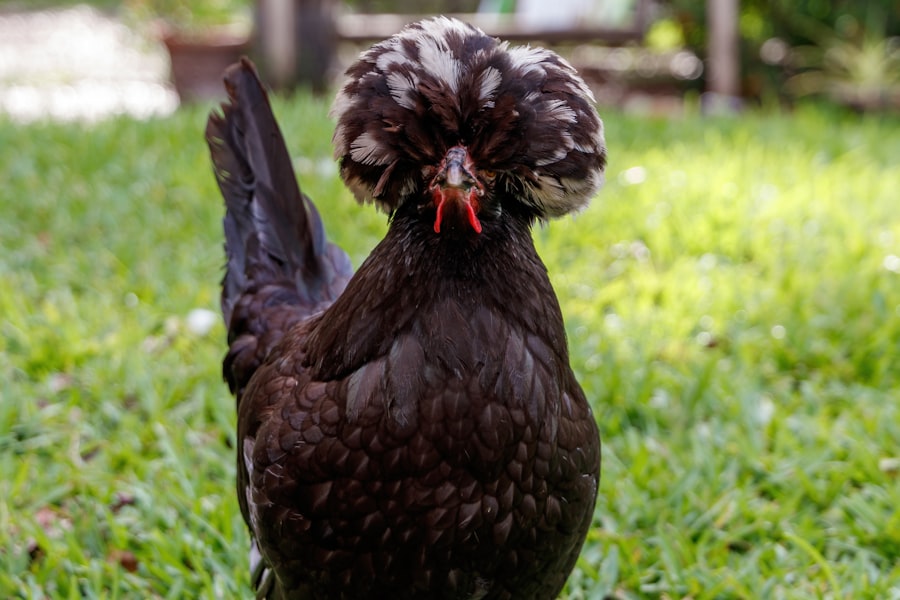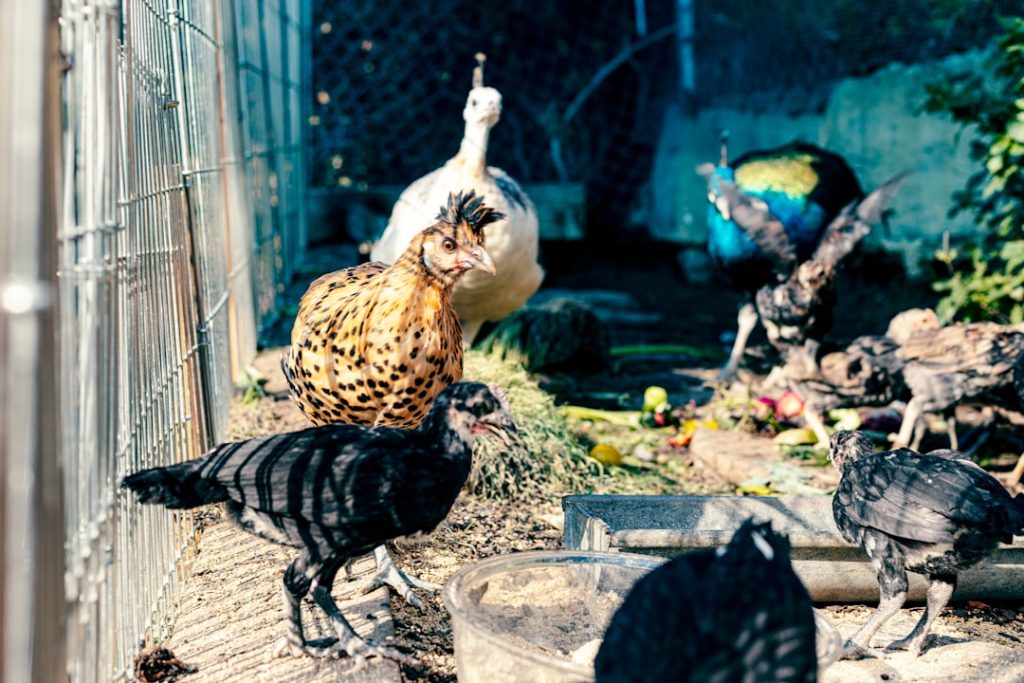In Brisbane, regulations for keeping chickens in residential areas are established by the Brisbane City Council. These rules aim to protect the health and safety of both chickens and the community. Residents should familiarize themselves with these regulations before keeping chickens on their property.
The guidelines cover aspects such as the maximum number of chickens allowed, housing and care requirements, and compliance with local zoning laws. Brisbane’s chicken-keeping regulations strive to balance the benefits of backyard poultry with potential community impacts. These rules typically include limits on the number of chickens, specifications for housing and care, and zoning compliance requirements.
Understanding and adhering to these regulations helps residents avoid fines and legal issues while enjoying the advantages of keeping chickens. By following the established guidelines, residents can maintain chickens in their backyards without causing problems for neighbors or violating local laws. Compliance with these regulations ensures a positive experience for both chicken owners and the surrounding community.
Table of Contents
- 1 Determining the Maximum Number of Chickens
- 2 Factors Affecting the Number of Chickens Allowed
- 3 Obtaining Permits and Licenses
- 4 Ensuring Proper Housing and Care
- 5 Compliance with Local Zoning Laws
- 6 Seeking Professional Advice
- 7 FAQs
- 7.1 What are the regulations for keeping chickens in Brisbane?
- 7.2 How many chickens are you allowed to keep in Brisbane?
- 7.3 Are there any specific requirements for keeping chickens in Brisbane?
- 7.4 Do I need a permit to keep chickens in Brisbane?
- 7.5 What should I do if I want to keep chickens in Brisbane?
Key Takeaways
- Brisbane’s regulations allow for keeping chickens in residential areas
- The maximum number of chickens allowed is determined by the size of the property
- Factors affecting the number of chickens allowed include property size, distance from neighboring properties, and coop size
- Permits and licenses are required to keep chickens in Brisbane
- Proper housing and care for chickens is essential for compliance with regulations
- Compliance with local zoning laws is necessary for keeping chickens in residential areas
- Seeking professional advice can help navigate the regulations and requirements for keeping chickens
Determining the Maximum Number of Chickens
Factors Affecting the Maximum Number of Chickens
The maximum number of chickens allowed on a property in Brisbane is typically determined by factors such as the size of the property and its zoning classification. It is vital for residents to determine the specific requirements for their area by consulting the Brisbane City Council or checking the local regulations.
Importance of Compliance
By determining the maximum number of chickens allowed, residents can ensure that they are in compliance with the law and avoid any potential legal issues. This is crucial to avoid any legal problems that may arise from keeping too many chickens on your property.
Responsible Chicken Keeping
By understanding the maximum number of chickens allowed, residents can ensure that they are in compliance with the law and avoid any potential legal issues. This will also help residents to plan and manage their chicken keeping activities in a responsible and sustainable manner.
Factors Affecting the Number of Chickens Allowed

Several factors can affect the number of chickens allowed on a property in Brisbane. These factors may include the size of the property, its zoning classification, and the proximity to neighboring properties. The Brisbane City Council may have specific guidelines in place to address these factors and determine the maximum number of chickens allowed.
It is important for residents to consider these factors when planning to keep chickens on their property and to ensure that they are in compliance with the law. The number of chickens allowed on a property in Brisbane can be affected by various factors such as the size of the property, its zoning classification, and its proximity to neighboring properties. The Brisbane City Council may have specific guidelines in place to address these factors and determine the maximum number of chickens allowed.
It is important for residents to consider these factors when planning to keep chickens on their property and to ensure that they are in compliance with the law. By taking these factors into account, residents can avoid potential legal issues and ensure that their chicken keeping activities are conducted responsibly.
Obtaining Permits and Licenses
In some cases, residents may be required to obtain permits or licenses before keeping chickens on their property in Brisbane. The specific requirements for permits and licenses can vary depending on the size of the property, its zoning classification, and the number of chickens being kept. It is important for residents to check with the Brisbane City Council or consult the local regulations to determine whether any permits or licenses are required for keeping chickens on their property.
By obtaining the necessary permits and licenses, residents can ensure that they are in compliance with the law and avoid any potential legal issues. Residents in Brisbane may be required to obtain permits or licenses before keeping chickens on their property, depending on factors such as the size of the property, its zoning classification, and the number of chickens being kept. It is important for residents to check with the Brisbane City Council or consult the local regulations to determine whether any permits or licenses are required for keeping chickens on their property.
By obtaining the necessary permits and licenses, residents can ensure that they are in compliance with the law and avoid any potential legal issues. This will also help to ensure that their chicken keeping activities are conducted responsibly and in accordance with local regulations.
Ensuring Proper Housing and Care
When keeping chickens in Brisbane, it is important to ensure that they are provided with proper housing and care. This includes providing a suitable coop or enclosure that meets the requirements set out by the Brisbane City Council, as well as ensuring that the chickens have access to food, water, and adequate space to roam. Residents should also be mindful of maintaining proper hygiene and cleanliness in the chicken coop to prevent any potential health issues for both the chickens and the surrounding community.
By ensuring proper housing and care for their chickens, residents can enjoy a successful and sustainable chicken keeping experience. Proper housing and care are essential when keeping chickens in Brisbane. This includes providing a suitable coop or enclosure that meets the requirements set out by the Brisbane City Council, as well as ensuring that the chickens have access to food, water, and adequate space to roam.
Residents should also be mindful of maintaining proper hygiene and cleanliness in the chicken coop to prevent any potential health issues for both the chickens and the surrounding community. By ensuring proper housing and care for their chickens, residents can enjoy a successful and sustainable chicken keeping experience while also being responsible stewards of their local environment.
Compliance with Local Zoning Laws

Compliance with local zoning laws is crucial when keeping chickens in Brisbane. Zoning laws may dictate where chicken coops can be located on a property, as well as any restrictions on noise or odor that may affect neighboring properties. It is important for residents to familiarize themselves with these zoning laws and ensure that they are in compliance with them when keeping chickens on their property.
By complying with local zoning laws, residents can avoid potential legal issues and conflicts with their neighbors while enjoying the benefits of keeping chickens in their backyard. Compliance with local zoning laws is crucial when keeping chickens in Brisbane. Zoning laws may dictate where chicken coops can be located on a property, as well as any restrictions on noise or odor that may affect neighboring properties.
It is important for residents to familiarize themselves with these zoning laws and ensure that they are in compliance with them when keeping chickens on their property. By complying with local zoning laws, residents can avoid potential legal issues and conflicts with their neighbors while enjoying the benefits of keeping chickens in their backyard. This will also help to ensure a harmonious relationship with the surrounding community.
Seeking Professional Advice
Seeking professional advice can be beneficial for residents who are considering keeping chickens in Brisbane. Professional advice may come from local agricultural extension offices, poultry experts, or veterinarians who can provide guidance on proper chicken care, housing requirements, and legal considerations. By seeking professional advice, residents can gain valuable insights into best practices for keeping chickens while ensuring that they are in compliance with local regulations.
This can help to ensure a successful and sustainable chicken keeping experience while also promoting responsible animal husbandry practices. Seeking professional advice can be beneficial for residents who are considering keeping chickens in Brisbane. Professional advice may come from local agricultural extension offices, poultry experts, or veterinarians who can provide guidance on proper chicken care, housing requirements, and legal considerations.
By seeking professional advice, residents can gain valuable insights into best practices for keeping chickens while ensuring that they are in compliance with local regulations. This can help to ensure a successful and sustainable chicken keeping experience while also promoting responsible animal husbandry practices. Additionally, seeking professional advice can provide peace of mind for residents who may be new to chicken keeping or unsure about certain aspects of caring for their feathered friends.
In conclusion, understanding Brisbane’s regulations regarding keeping chickens in residential areas is essential for residents who wish to embark on this rewarding endeavor. Determining the maximum number of chickens allowed, considering factors affecting this number, obtaining permits and licenses when necessary, ensuring proper housing and care for the chickens, complying with local zoning laws, and seeking professional advice are all crucial steps in responsibly keeping chickens in Brisbane. By following these guidelines and being mindful of local regulations, residents can enjoy a successful and sustainable chicken keeping experience while also being considerate neighbors within their community.
If you’re interested in learning more about keeping chickens in Brisbane, you may also want to check out this article on chicken coop designs in Grand Island, NE. It provides valuable information on how to create a suitable living space for your chickens, which is essential for keeping them healthy and happy.
FAQs
What are the regulations for keeping chickens in Brisbane?
In Brisbane, the regulations for keeping chickens are outlined in the Brisbane City Council’s local laws. These laws specify the number of chickens allowed on residential properties and any specific requirements for their housing and care.
How many chickens are you allowed to keep in Brisbane?
In Brisbane, the number of chickens allowed on a residential property is typically limited to 20, but this can vary depending on the size of the property and its zoning. It’s important to check the specific regulations for your area.
Are there any specific requirements for keeping chickens in Brisbane?
Yes, there are specific requirements for keeping chickens in Brisbane, including guidelines for the construction and placement of chicken coops, as well as rules for the disposal of chicken waste. These requirements are in place to ensure the health and well-being of the chickens and to minimize any potential impact on the surrounding community.
Do I need a permit to keep chickens in Brisbane?
In most cases, you do not need a permit to keep chickens in Brisbane as long as you comply with the local laws and regulations. However, it’s important to check with the Brisbane City Council to confirm the specific requirements for your area.
What should I do if I want to keep chickens in Brisbane?
If you are interested in keeping chickens in Brisbane, it’s important to familiarize yourself with the local laws and regulations regarding the keeping of chickens. This may include checking the number of chickens allowed on your property, as well as any specific requirements for their housing and care. Additionally, it’s a good idea to consider the needs of the chickens and ensure that you are able to provide them with a suitable and safe environment.
Meet Walter, the feathered-friend fanatic of Florida! Nestled in the sunshine state, Walter struts through life with his feathered companions, clucking his way to happiness. With a coop that’s fancier than a five-star hotel, he’s the Don Juan of the chicken world. When he’s not teaching his hens to do the cha-cha, you’ll find him in a heated debate with his prized rooster, Sir Clucks-a-Lot. Walter’s poultry passion is no yolk; he’s the sunny-side-up guy you never knew you needed in your flock of friends!







